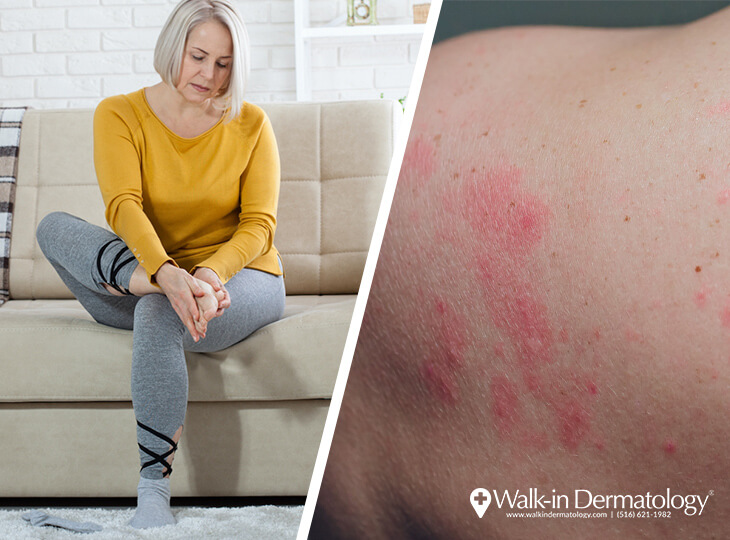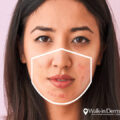Tues: 8:30am - 3:00pm
Wed: 12:00pm - 6:00pm
Thurs: 8:30am - 3:00pm
Fri: Closed
Sat: 8:30am - 12:30pm
Sun: Closed
Greenvale, NY 11548
Covid-19 Patients Often Endure Lingering Skin Conditions


Beyond the misery of infection with Coronavirus, dermatologists warn patients they may experience ongoing skin conditions long after recovery from the disease.
Research scientists refer to some of these patients as “long haulers,” defined as anyone with skin symptoms from Covid-19 that last for 60 days or longer.
A team of physicians at Massachusetts General Hospital tracked nearly 1,000 patients with skin conditions caused by Covid-19. Redness and swelling of the feet and hands, commonly known as “Covid toes,” was a common symptom among these patients. A lingering skin rash was found to be especially common in young children, according to studies by the Centers for Disease Control.
How Long Will This Go On?
Symptoms of Covid toes last an average of two weeks following recovery from the disease, studies show. The virus causes inflammation and redness, although scientists still aren’t sure why. The American Academy of Dermatology suspects these reactions are part of the immune system’s response. Some patients who suffer from Covid toes report they are unable to wear shoes due to the discomfort. Pain typically lasts about a week in the affected area, while rashes and discoloration may take longer to go away.
Urticarial eruptions, which appear on the skin as red or white bumps, last an average of four days, although some patients may continue to experience these symptoms for nearly a month following recovery from Covid-19.
Hive-like rashes lasted an average of four days, and morbilliform rashes, which resemble measles, lasted for a week, the study found. The maximum duration was 28 days.
People who developed a scaly skin condition called papulosquamous experienced the symptoms for an average of three weeks post-infection.
While these skin conditions are not lethal, especially when compared to the risks of the Coronavirus itself, the symptoms can irritate, may cause severe itching, pain and swelling, and can be a potential source of embarrassment beyond the discomfort.
Other Considerations
People with preexisting skin conditions should take extra precautions to reduce the risk of contracting Coronavirus in the first place, cautions the National Institutes of Health. Patients with autoimmune and chronic inflammatory disorders, such as psoriasis, atopic dermatitis, lupus and scleroderma are at elevated risk for becoming infected due to the greater opportunities for the virus to get into the body.
The best plan? Stay at home, avoid crowds and maintain social distancing while covering your skin if you must be out and about.
Let Walk-in Dermatology Treat Your Skin Condition
If you’re concerned about a lingering skin condition after being sick with Covid-19, or if you’re experiencing any other skin condition, there’s no need to worry, wait or wonder. Walk-in Dermatology is open and ready to see you. Our team of board-certified dermatologists and experienced medical staff will address your concerns and provide the necessary treatment for any skin condition. You can also schedule an appointment with us for treatment. Best of all, there’s no waiting.
If you can’t make it to one of our offices, we can set up a Video Visit and even prescribe medications remotely. We can help. Contact us today.








